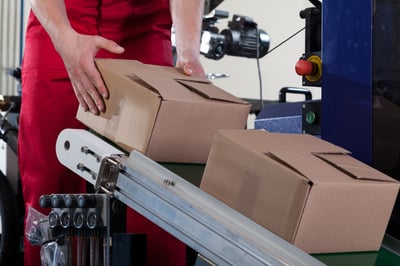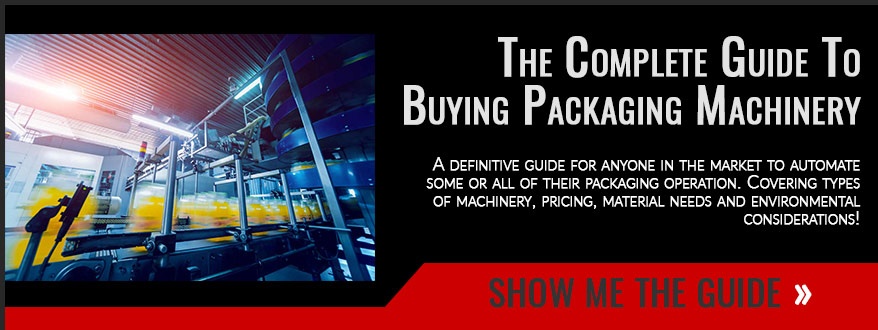Top 5 Types Of Customers Not Good For Contract Packaging
Are you thinking of purchasing a contract packaging plan to outsource your company's supply chain and packaging line? Wait, before you do, you will want to read this article! Why is that?
Well, for one thing, very few contract packaging companies are willing to identify why you should not use contract packaging. But, there are specific reasons for certain companies not to use a co-packer.
In an effort to be transparent, open, and honest, we feel that it is imperative to be clear about those companies that are and are not, in fact, a good fit for partnering with a contract packaging company.
With several decades in both contract and in-house packaging, Industrial Packaging knows which companies are unsuitable for contract packaging programs.
In this article, we are going to review the top 5 types of customers who are not a good fit for contract packaging. With the information in this article, you will be able to decide if contract packaging is right for your business or not.
Who Is Not A Good Fit For Contract Packaging?
While we would love for all companies to adopt a contract packaging plan, we know that contract packaging is not right for everyone. In fact, there are some types of customers who simply should not use a co-packer.
For these companies, in-house packaging would be a better solution. But, how does a customer know if they are not a good fit for a partnership with a co-packer?
Below, we will explore the types of companies who are not appropriate for implementing a contract packaging plan.

1. Customers Unwilling To Relinquish Control Of Their Supply Chain
You might be a good fit for contract packaging in many ways. Perhaps you can't afford a full line of packaging machinery. Maybe you are a start-up and do not have your own warehouse yet.
Then again, maybe you are an established business whose machinery is at the end of life, and you are weighing your options between continuing in-house or saving money by outsourcing to a co-packer.
You may very well be a perfect fit in every way for a contract packaging plan. But, if you fall into one specific category, it will not be a good decision. That category is of those people who do not want to give up control of their packaging line and supply chain.
When you outsource your packaging to a contract packaging company, you must relinquish control over many decisions. This includes elements such as the type of machinery on the packaging line, the type of materials used, the presence or lack of automation, the labor force, and many other dynamics.
For many people, letting go of control is not something they are willing to do. And that is totally fine! But, if you inadvertently enter into a contract packaging program only to realize you are not comfortable with giving control to your co-packer, you are going to have a very stressful time.
Interested In Buying Packaging Machinery?
2. Customers Who Are Not Located Close To A Contract Packaging Company
While you may very well want to outsource your packaging line and supply chain to a contract packaging company, you may not actually be able to.
If your company is located too far away from a contract packaging company, your shipping and logistics costs will be too expensive to justify purchasing a contract packaging plan.
Generally speaking, you will not want to partner with a co-packer who is more than a 6 hour drive from your company.

3. Customers With A New In-House Packaging Line
After researching contract packaging, you might want to purchase a contract packaging plan. But, if you have a new in-house packaging line and supply chain, it will not make sense for you to buy a contract packaging plan for financial reasons.
On average, an in-house packaging line costs around $300,000. And, that does not include the cost of your warehouse, utilities, labor force, and other related dynamics.
In this case, switching to contract packaging at this stage in the game would be a mistake. It would not make sense for your business from a financial perspective.

4. Customers Who Cannot Afford A Contract Packaging Plan
If you can not afford to purchase the service outright or have the ability to finance the program, you will not be able to enter into a contract packaging plan.
To figure out if you can afford contract packaging, you need to work with a rep from a contract packaging company and calculate the cost of your project. Or, you can use this free calculator to get a ballpark figure of the cost of outsourcing your supply chain.

5. Customers Who Do Not Have A Large Enough Project
If you are a small company and cannot meet the minimum order requirements for a contract packaging plan, you will not be able to enter into a contract packaging program.
Generally speaking, you will not be able to enter into a contract packaging agreement if your project will require less than 4 shifts of labor.
If you cannot manufacture enough products to meet this minimum requirement, you will not be able to outsource your packaging and supply chain needs through a contract packaging company.

If You Can't Do Contract Packaging, What Should You Do?
If you are one of the types of customers mentioned above, unfortunately, contract packaging is not for you. If that is the case, you will have to do your packaging in-house. In this scenario, you will have to set up an in-house packaging line and purchase your own machinery.
If you are interested in learning about purchasing packaging machinery to build an in-house packaging line, you will want to read The Complete Guide To Buying Packaging Machinery.
This guide will give you everything you need to know about buying packaging machinery for your in-house packaging line.
About Nathan Dube
As the Digital Marketing Specialist at Industrial Packaging, I am honored to create content for such a phenomenal company and work with one of the greatest teams in the Packaging Industry. Whether creating a video, writing blog posts or generating other pieces of content and multimedia, I am always excited to help educate and inspire our prospects and clients to reach their highest potential in regards to their packaging processes and needs.





